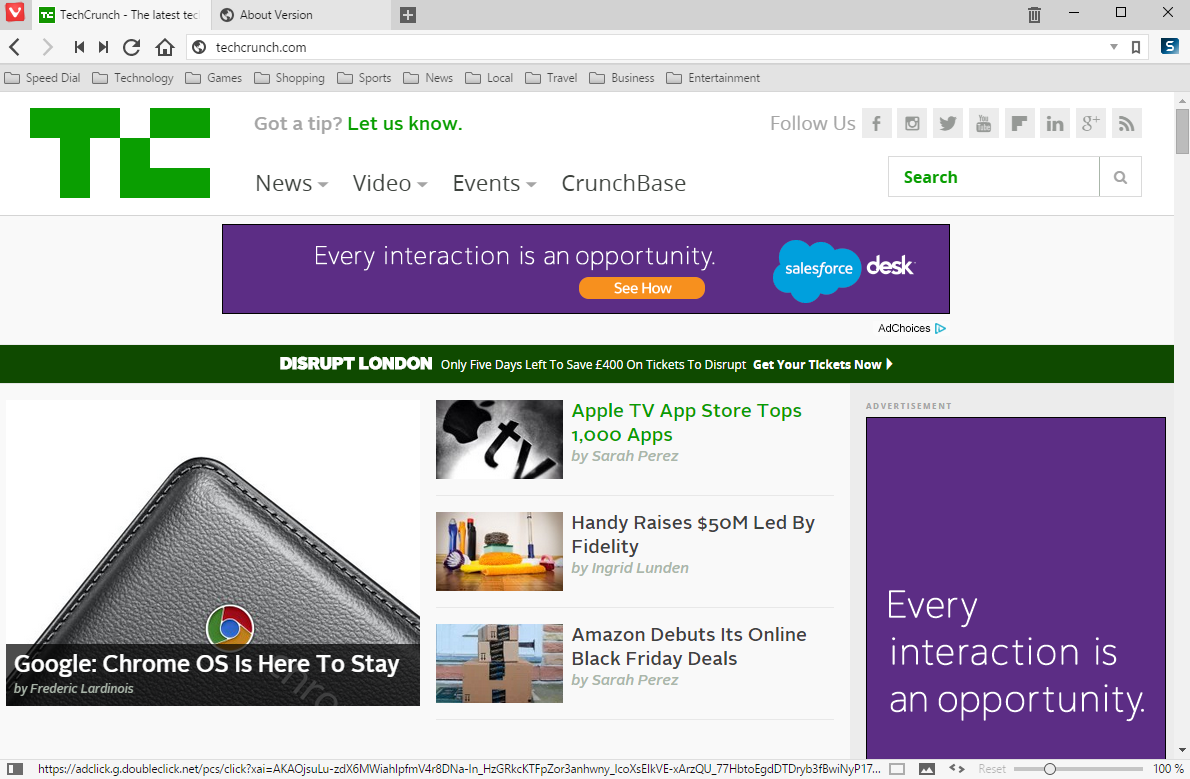Earlier this year, Opera’s former CEO Jon von Tetzchner launched Vivaldi, a new desktop browser for power users (and those who were unhappy with Opera’s direction after that company’s switch to Google’s rendering engine after von Tetzchner left). Vivaldi has now been downloaded more than 2 million times during its technical preview and the team believes it’s now ready for its beta phase.
“Our focus has been on getting closer to a final release,” Vivaldi CEO von Tetzchner told me. “More and more, we are now getting to the point where we are fixing bugs — and most of the functionality we would have liked to see in the final release is in the browser. Now it’s about finishing features — it’s about fixing bugs.”
With most of the features in place, the team felt it was now time to call Vivaldi a beta release and get more people to use it.
 Two major features won’t make it into the final release, though, as von Tetzchner told me. The team, which is still pretty small, won’t be able to launch the promised mail feature in time and the browser also won’t feature a built-in sync tool yet. Both of these are complex tools and remain on the company’s roadmap, but they won’t be in the 1.0 release. “We know we have to deliver them,” he said, but also noted that these are features most users can live without for a little while longer.
Two major features won’t make it into the final release, though, as von Tetzchner told me. The team, which is still pretty small, won’t be able to launch the promised mail feature in time and the browser also won’t feature a built-in sync tool yet. Both of these are complex tools and remain on the company’s roadmap, but they won’t be in the 1.0 release. “We know we have to deliver them,” he said, but also noted that these are features most users can live without for a little while longer.
The beta release itself doesn’t feature any major new features. Instead, the team focused on fixing lots of details and improving the user interface, including the settings menu, for example.
Von Tetzchner believes there is a clear market for a browser like Vivaldi. Philosophically, the team is taking a very different approach from most other browser vendors. While most modern browsers try to simplify the browsing experience to the point where the browser UI essentially disappears, the Vivaldi team sees the browser as a tool that its users should be able to shape according to their needs.
The team knows that it can’t compete with Google, Microsoft and Mozilla on distribution right now, but von Tetzchner thinks there is plenty of room for Vivaldi to differentiate based on providing users the kind of features that the other vendors don’t want to offer because they are aiming for simplicity.
Next on the roadmap for Vivaldi is the 1.0 release, though von Tetzchner wouldn’t say when exactly this would happen (“It’s ready when it’s ready.”). He did note, though, that the team has been thinking about launching a mobile browser, but for now, the focus is on getting the 1.0 release of the desktop out.
If you tried one of the earlier (and buggier) versions of Vivaldi, now is probably a good time to give it another try. It definitely wasn’t ready to be your default browser a few months ago, but at this point, it’s both a fast and stable alternative to the likes of Chrome and Firefox (especially now that you can use extensions from the Chrome Web Store with it).
